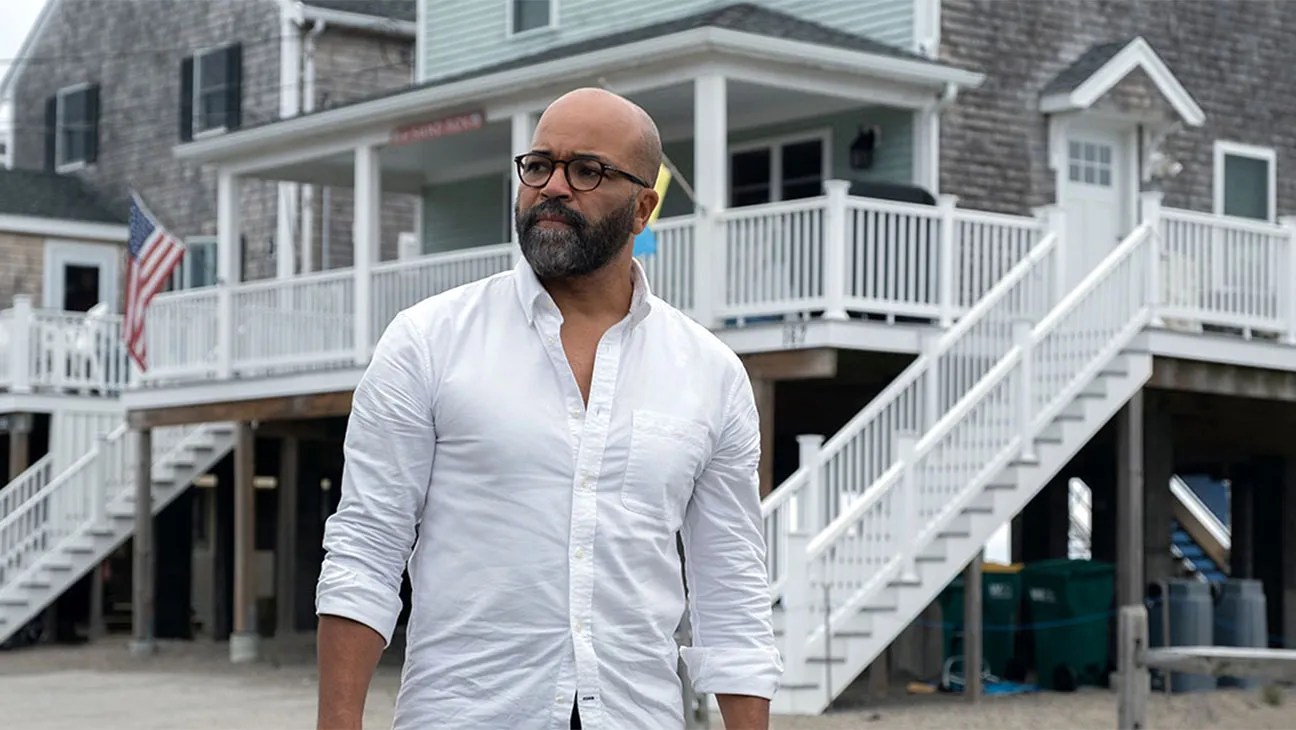Starring Jeffrey Wright, ‘American Fiction’ is a satire of the publishing world where a writer, in trying to mock the system, unintentionally profits from it, and continues to be horrified by how no one can seem to understand the joke. Wright plays Monk Ellison, a novelist who hasn’t yet found literary success and is continually told by his agent to write something that will sell as “black enough” to the publishers.
Monk refuses to let his race define his work, but when he discovers that that’s what the publishers and the readers demand, he writes an entire novel as a joke. And that joke of a novel gets him everything he ever wanted. What unfolds next is unbelievable and yet a commonly known practice. The way the film presents it to the audience makes one wonder if this thing really happens. Is there a real author like Monk Ellison?
Monk Ellison has Similarities With the Author of Erasure

Monk Ellison in ‘American Fiction’ is the creation of Percival Everett for his novel, ‘Erasure,’ which is the inspiration for the film. The name of the protagonist, Thelonious “Monk” Ellison is a combination of author Ralph Ellison and jazz pianist Thelonious Monk. One could find many similarities between the fictional Monk and the real Ralph Ellison, particularly in the way they both viewed race and expressed their disdain for stereotyping the Black experience so much that it didn’t allow room for more inclusive stories of their varied experiences, which are broader than the general perception in the media and books.
While Everett was certainly influenced by Ralph Ellison, he also wrote Monk in his own image. For Everett, the idea to write ‘Erasure’ came from his own disapproval of boxing stories by and about Black people into a certain picture, which was mostly dictated by white people in charge of institutions like publishing houses and film production houses. He didn’t believe that one’s race should limit them to telling only a particular kind of story and was also frustrated because when he or some other Black author wrote stories outside of that box, they didn’t receive as much attention.
Like Monk, Everett didn’t want to write only about slavery or characters from the hood or drugs or violence because that’s what’s expected of him as a “black writer.” But then, he saw that the publishers preferred the stories of the said Black experience, which meant that his work outside of that circle wasn’t appreciated at all, no matter how well-written it was. Monk goes through the same cycle and ends up writing a novel that he conceives as a satire or rather a joke, but it turns around on him and becomes his most successful work to date. For Everett, too, something similar happened with ‘Erasure,’ a full-blown satire that was named his breakout novel and the one he is best known for.

The author said that these similarities between him and his protagonist end with the idea of their novels. All that happens after, and even a lot that happens in between, is purely his imagination. For example, Everett didn’t adopt a pseudonym or pretend to be a fugitive and ex-convict to give more weight to his book’s sale. For Monk, he concocted the alter-ego of Stagg R. Leigh to write ‘My Pafology,’ which is another reference to a story that would be counted as a “black experience.”
The story, or rather the myth, of Stagger Lee, speaks of an incident that happened in 1895, when Lee, a Black man, shot a man named Billy Lyons when the latter snatched his hat. The story has been told through songs (that have found iterations in the voices of the likes of James Brown, Ma Rainey, Elvis Presley, and Woody Guthrie, to name a few. Poems, novels, dissertations, raps, and musicals have been written about it. It is the story that has been passed on over the years, and Everett borrowing the name adds another layer to his satire and the point he is trying to make. With all this in mind, it is fair to say that Monk Ellison is not based on a real person, but he is created to reflect what happens in the real world.
Read More: Loved American Fiction? Here Are 10 Films You’ll Also Like


You must be logged in to post a comment.